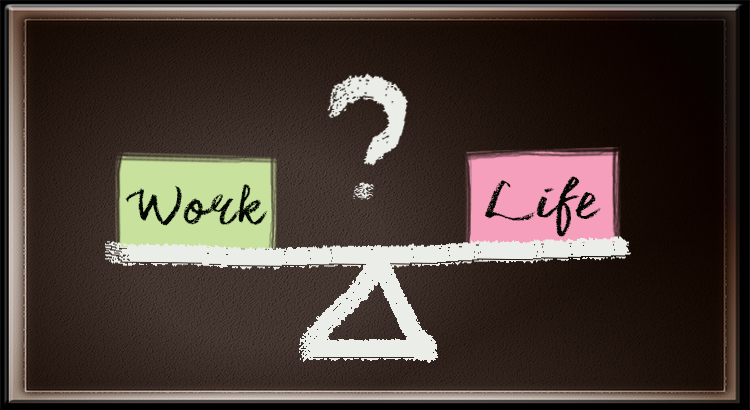In the Workforce Retention Study of the American Psychological Association (APA) in 2012, there is a number of reasons cited why employees stay with their current employers. And the second top reason why employees stay with their employer is work-life balance.
Yes, work-life balance is a wonderful goal, but is it really possible? This short film from The School of Life tells us it’s not possible, and it claims that’s a great thing:
Our brains are not designed or evolved to be maximally efficient at any one thing…. The price we pay for being generalists is that we’ll be less good at any one of the many activities we perform than someone who did only one thing their whole life long….
We should realize that our less than completely optimal performance is down to one very understandable thing: that we’ve chosen breadth and variety over total focus and narrow perfection. And that’s a very wise choice….
Unfortunately our society has set up an absurd idea that it will be possible to do many things and do them all completely well…. A perfectly optimal career and a perfectly optimal home life. This is a mad idea…. That you’re doing too much and none of it without mistakes isn’t a sign that your life has gone wrong; it’s a sign of a very wise and understandable position: that you’ve opted for imperfect variety over flawless focus.
What work-life balance is and the conceptual dilemma it presents
The School of Life defines the work-life balance as the summation of a perfectly optimal career plus a perfectly optimal home-life. It revolves around the assumption that we are two people (or two roles): our professional role and our personal role, and these two should never meet inside the workplace, and thus, split and fragment ourselves and find a way to balance these two roles (anyhow) by being perfectly optimal in both (efficient and effective). This is buttressed by the mainstream value that ‘it will be possible to do many things and do them all completely well.’ This definition assumes that your professional self is striving for the best career there is for you (say you, as a junior executive, want to be filthy rich and has become workaholic), and at the same time strives to be the perfect version of your personal self (e.g. the perfect father who attends to every of your sons school recognition days, the perfect son who visits his elderly on weekends, etc.). It’s about choosing focus and narrow perfection for each aspect of our multiple roles at the same time. Scholars of psychology call this ‘positive role balance’ (Marks and MacDermid, 1996)
And if that is the case, work-life balance is closer to being a myth, than a reality as ‘everything worth fighting for unbalances your life.’
“People who invested more time, and involvement in family than in work are more happy and have the highest quality of life.”
But… isn’t work-life balance just about “satisfaction and good functioning at work and at home, with a minimum of role conflict” (Clark, 2000). Isn’t it about opting for that imperfect variety? Isn’t it about letting yourself off work and having time at home as well as work? Isn’t work-life balance the antidote to the narrow perfection [to either aspect of your dual self]? Isn’t it just about satisfactory life harmony more than it is about perfection of roles?
True. That’s the dilemma. There is a lack of consensus on how work-life balance should be defined, measured, and researched, and thus, the theorizing of what constitutes work-life balance, how it develops, and what factors enable or hinder it, is still in progress (Grzywacz and Carlson, 2007; Jones et al., 2006; Voydanoff, 2005).
Greenhaus et al. (2003, p. 513) have defined work-family balance as “the extent to which an individual is equally engaged in – and equally satisfied with – his or her work
and family role.” These scholars say that work-life balance simply means balance in just three things – time, involvement, and satisfaction. This defines work-life balance as a continuum where ‘imbalance in favor of the work role lies at one end, and imbalance in favor of the family role lies at the other end, and balance lies in the middle favoring neither work nor family role’. So if you balance work and life, you aren’t spending time, nor involved, nor satisfied more on one end than the other end.
Following this idea of work-life balance, then it means work-life balance does not necessarily mean it is beneficial nor detrimental to a person’s psychological well-being and quality of life.
Not surprisingly, in the study conducted by Greenhaus et al. in 2003, the result is that people who invested more time, and involvement in family than in work are happier and have the highest quality of life. Moreover, the study states:
“In regard to their level of engagement, the equally balanced individuals scored lower in quality of life than those favoring family over work, but higher than those favoring work over family. Thus, those who invested most in work had the lowest quality of life [emphasis added].”
So the point is. . ?
We should not fret about being slaves for two masters. We must not be too worried about maintaining that mythical myth of balance between work and personal life (although for some people it is the same thing, especially for creatives and entrepreneurs) – killing it in both areas and keeping them both in perfect proportion. Fretting too much on achieving work-life balance is the same as living to merely balance.
So, focus on being the most effective version of yourself across the board by playing to your strengths and investing in yourself. You need not be the perfect version of yourself, just the most effective version of you.
Savor the fact that you get to be so many different things for so many different people towards so many different ends. As the film states, “Work-life balance is impossible because everything worth fighting for unbalances your life.” So, work to live.
Academic Sources:
Clark, SC. (2000). Work/family border theory: a new theory of work/family balance. Hum Relat 53:747–770 [Accessed thru personal subscription]
Greenhaus, JH; Beutell, NJ;(1985). Sources and conflict between work and family roles. Acad Manage Rev 10:76–88 [Accessed thru personal subscription]
Greenhaus, JH; Collins, KM; Shaw, JD. (2003). The relation between work-family balance and quality of life. J Vocat Behav 63:510–531 [Accessed thru personal subscription]
Grzywacz, JG; Bass, BL. (2003). Work, family, and mental health: testing different models of work-family fit. J Marriage Fam 65:248–262 [Accessed thru personal subscription]
Grzywacz ,JG; Carlson, DS. (2007).Conceptualizing work-family balance: implications for practice and research. Adv Dev Hum Resour 9:455–471 [Accessed thru personal subscription]
Grzywacz, JG, Marks, NF, (2000). Reconceptualizing the work-family interface: an ecological perspective on the correlates of positive and negative spillover between work and family. J Occup Health Psychol 5:111–126 [Accessed thru personal subscription]
Jones, F; Burke, RJ; Westman, M. (2006).Work-life balance: a psychological perspective. Psychology Press, New York, NY [Accessed thru personal subscription]
Marks, SR., (1977). Multiple roles and role strain: some notes on human energy, time and commitment. Am Sociol Rev 42:921–936 [Accessed thru personal subscription]
Marks, SR; MacDermid SM. (1996). Multiple roles and the self: a theory of role balance. J Marriage Fam 58:417–432 [Accessed thru personal subscription]
Voydanoff, P. (2005). Toward a conceptualization of perceived work-family fit and balance: a demands and resources approach. J Marriage Fam 67:822–836 [Accessed thru personal subscription]
Web Source/s:
Baron, A. (2015). The Future of Life: Are You ‘Life Working’ or Trying to Balance?. [online]
Stadd, A. (2015). You’ll Never Achieve Work-Life Balance, And That’s Awesome. [online]

